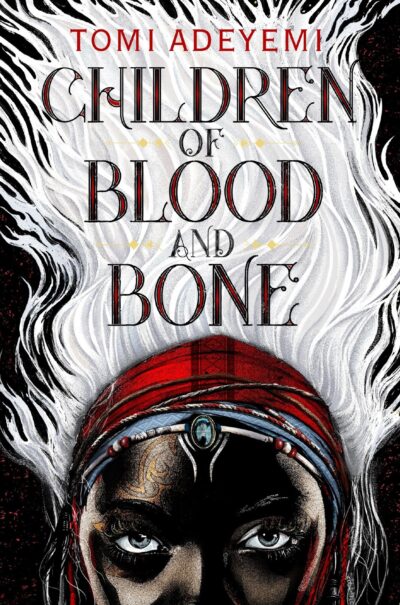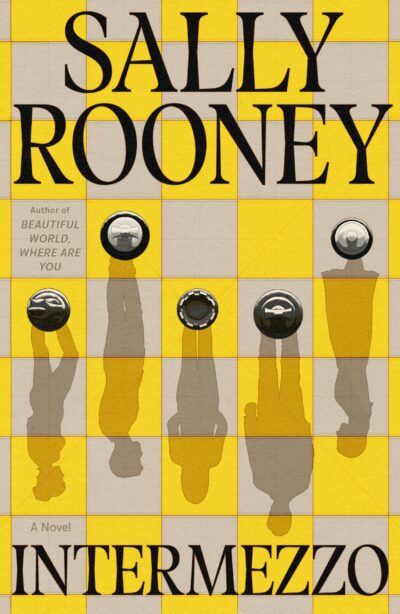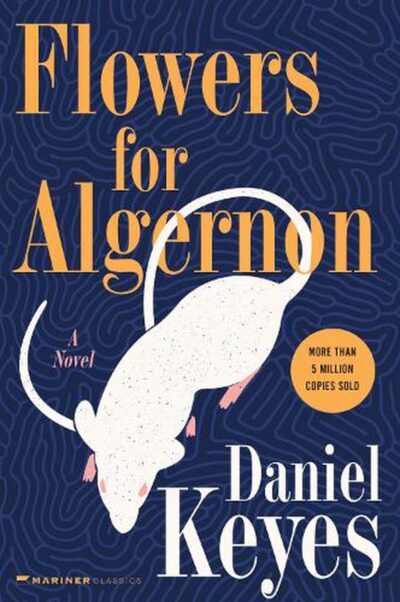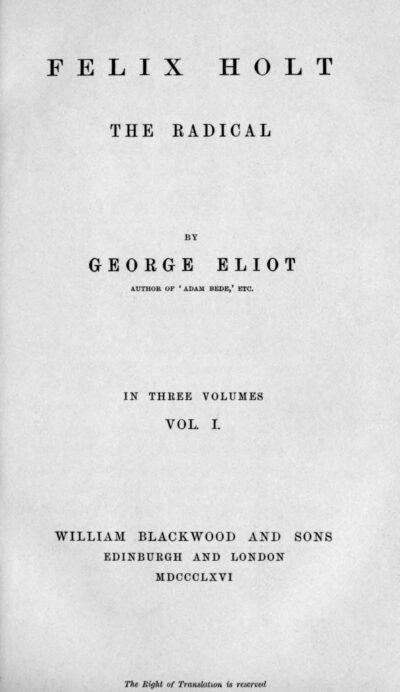Admittedly I am not a huge fan of romance, but I wanted to try something new. To begin that shift out of my comfort zone, I decided a romance book with a fantasy setting was right up my alley. I’m already an avid enjoyer of fantasy currently my primary book series is A Song of Ice and Fire since they’re so long. I figured there was a good chance I might actually like this book since it does have fantasy along with the romance.
Now another consideration for this book is that I am listening as an audiobook. It’s kinda hard to find time to sit down and read a book even if it’s on my phone. My library had both the ebook and the audiobook available on Hoopla so I was listening to the book currently which might be adding to some of the confusion I’m experiencing.
What I’m Experiencing
So admittedly in the title I express that I’m finding the fine line between curiosity and confusion. Besides the prologue, we know absolutely nothing about the world this story takes place. This lack of explanations leads to both curiosity and confusion. Now there were also moments I felt immersed in the story, but at the same time, there were sections where I felt dissociation and frustraion. It’s a very fine line with a lot of these experiences and I think the techniques used influence the walking of that fine line.
Technology Usage and Their Impacts on Experiences
As I previously had stated the book begins with a prologue, introducing us to the world and how it came to be. This prologue establishes the technology of reality shifter in the story world. It’s an unrealistic world, we don’t have most of the features of the world that are established in this prologue. This brief introduction though does a great job in making you curious. They describe the gods’ sounds only as songs, never a speaking voice, and this is used later in the story to establish the characters’ abilities.
His baritone song was so full of substance, yet lacked it entirely. A lonely echo that haunted the empty space between the near and distant suns- inaudible in its depth, no matter how loud he sang. …
Bulder, God of the Ground, sculpted the sphere with one belted bellow…With more blunt and droning words, Bulder sculpted the terrain…
Rayne fell upon the ground in a billion yearning teardrops of unrequited love…her love was a screaming torrent. The deep, gut-wrenching wail of an avalanche. The near-silent cry of sprinkling rain.
Her mournful song was so unlike that of her sister, Clode – Goddess of the Air – who hinged on the precipice of immesurable madness. Her voice was a ribbon of silk, soft to the touch, unless it turned to the side and slit you with its edge. …
Ignos was a glutton for Clode…His searing song was one of ferocious hunger and impassioned greed…
Prologue of When the Moon Hatched (transcribed from the chapter)
I know for me personally these descriptions of their voices that are so non-typical made me curious. Why are their voices described as songs and not speaking voices? Other worlds that use these elemental systems that I’ve either read or seen, never have the elements speak directly to the users. For example, one of the most well-known worlds with this that I think of is Avatar The Last Airbender which has animals who were the original benders. The human characters use similar techniques but they never directly hear those elements. It makes a unique world and you’re curious how these songs will come into play.
To go with this curiosity they describe the jealousy of the very first god Caelus, who can’t be seen or interact with anything, whose song was first described. I felt like I couldn’t help but empathize with him. In this world that he gifted the other gods, they were thriving and all able to interact and they make life that blooms. Through all of that, he still can’t be heard, or seen, and he grows bitter over it. Especially when you’re told how beautiful and glorious the Gods’ favorite creatures, the dragons are, and how they become even more beautiful in death by becoming moons. You understand why Caelus would be bitter, in being unable to interact with the world around him especially when it sounds so beautiful. While you don’t agree with him, you do understand why he begins to destroy the moons, in an act of rage over how he feels the world is unfair to him.
It takes more deception of the angered god and the rest of the god’s full power in order to subdue him and lock him in a stone laid in a diadem. The diadem is given to a powerful fae warrior to guard and protect it. And this works for a long long time until another moon falls. Now this bit gives me a bit of confusion. The first question I had was about the fae- they never established that those exist in this world. Where did this warrior come from? Are there fae and then also humans? This brings into question what the rest of the characters are later in the story. Are they humans? Are they fae? It felt like the author had planned this but didn’t explain enough for me to understand where this warrior came from. Another question is what time period this moon falls. Is it when the main story takes place? The diary entries tell us when they are in relation to Caelus being placed in the stone- the main story though you know occurs after this but nobody acknowledges that a moon fell. That seems like a pretty significant event that would impact most lives in the world. It’s almost frustrating how little you know right at the very end. This is the beginning of where the story begins to toy with that line between invoking curiosity and confusion for me.
The next few chapters focus on the main character Reave, who is an assassin working for a resistance group known as the Fíur du Ath, who oppose the crown. Reave is special in that she also wants to take the bad people of the world out and not just secure power for her faction. Chapter 3 is where I personally felt the most immersed. The story uses a stretch to make Reave into this powerhouse of a character who is serving justice to those bad people in this world. She doesn’t consider herself a good person, she knows what she’s doing is morally wrong acts, but for a good cause. It’s another instance of experiencing empathy for a character that you don’t completely agree with. Now I will be the first to admit, that chapter 3 is the first time anything remotely exciting happened which might contribute to the feeling of immersion. Another contributing factor to that immersion was that I was doing something while listening that made me feel connected at that moment.
I mutter, easing the runed dragonscale blade from the secret pocket of my bodice, this one sharp enough to cut through bone like butter.
I turn, head cocked to the side, looking right into his wide, bloodshot eyes — anticipation prickling in the tips of my fingers. “Are you having a Creators-blessed slumber?”
His eyes bulge, then narrow on the blade I’m twirling. He loses his footing, crumbling against the far wall, mouth agape while he claws at his throat.
…
“Your family sends their regards,” I sneer, then slash my blade through his throat.Chapter 3 of When the Moon Hatched (transcribed from chapter)
So in the narration of this the author uses an I voice to put you in the place of Reave and feel more connected in that moment and puts you in the heart of this action. Now also important to my feeling of immersion may have been what I was doing in that moment. The world around you impacts the way you experience a story just as much as the techniques used. You could be watching the happiest show you know, or reading the most uplifiting book but say you experienced a devistating loss that joy might not pass on to you. As I’ve talked about in class, my thesis has me working with bones. So I was listening to this book while in the lab sawing my samples. So when Reave is narrating this killing with a knfe that cuts through bones like butter I was imerssed because here I am struggling with a hacksaw to cut this one bone. I understood what she was doing and how difficult it could be, and the fact I was physically doing the same motions I would imagine her to do helped with that immersion a lot.
Admittedly, the character archetype of Reave is pretty simple- a troupe that can be found in almost any fantsay novel. An assassin who opposes the oppresive government. Someone who isn’t a good person, and doesn’t pretend to be but wants to stand against the injustice. And in the 35% of the book I have finished that doesn’t change. She feels very flat and one note currently. There’s been nothing to change her line of thinking and this might change in the future but, at this moment I’m unsure.
Another thing in the story is that it feels like there’s certain beats it wants to hit, but they don’t make an emotional impact with the readers in the way it was likely meant to. It feels like the author was attempting to set up within the world an opportunity to observe. If we had been given time to get connected to Essi, who is the equivalent of Reave’s little sister, the death would have been really impactful and we as readers would of felt more at that death. Instead you meet her in one chapter with Reave, get a disconected chapter with Kaan, and she dies in the next Reave chapter. I felt both disociation but also a level of frustration. I didn’t really care that Essi was dying, sure she was cute for her one chapter, but that was one chapter. I didn’t have a bond that made me care when she died. I was also really frustrated in the way that the author went about it. Having a totally different story interject between these two chapter felt so distracting especially when it introduces a new set of characters and a very confusing in my opinion plot point. It just felt annoying that this is where the cut occured, and we come back to this charcater we were meant to care about dying almost off screen. We don’t get to see her go down to the undercity, we cut back to Reave and now suddenly a character is dying. It felt just like it came from nowhere and didn’t serve any purpose beyond advancing the plot.
Speaking of confusion, let’s talk about that randomly interjected Kaan chapter where so little happened but it confused me all the same. The first thing that confused me was suddenly getting new characters introduced in the middle of that plot. Who is Kaan the narrator of the chapter, and who is Kyzari? From the prologe we know the diadem holds Caelus, so I would assume she important. We know Kaan is her uncle, but who are they in the context of this story. The next bit though just made me so confused I needed to stop for a solid minute to process it.
“Because I want help to set him free.”
It’s like she reached across the table, swung her hand back, and slapped me in the face.
“Impossible,” I growl. “It’ll kill you. The diadem can only be removed from a pulseless host.”
“I don’t intend to die, Uncle. There has to be another way. I just have to work it out.” I’ve never wanted to shake someone so much in my life, my hands bunching into fists so tight my knuckles pop.
“And why do you want to do that?” I grind out. “The Aether Stone has been passed down for generations. Your mah wore it. Her mah before that. On and fucking on -“
“His name is Caelis,” she announces, her voice stained with a fierce imperial lilt. She pins me with a stare that cuts through flesh and bone. “And because I’ve fallen in love with him.”
A rumble boils deep inside my gut, scalding up my throat with such intense heat I swear my flesh peels off.
I know too well how malignant the roots of love can be. I’ve suffered from the same ailment for over an eon, and I’ll continue suffering until the dae I die.
Chapter 13 of When the Moon Hatched (transcribed from chapter)
How did she fall in love with the god in the stone? His whole shtick has been nothing in the world can interact with him or hear his song. Now suddenly, the wearer of the diadem can hear him? Like something about it just wasn’t clicking with me. Like Kaan empathizing with knowing how painful love can be, makes slightly more sense and sets him up for the opportunity to be a sympathetic character later on. But how does this girl we just met suddenly trust the thing in the stone, they have whole stories about killing the moon dragons? It’s just an odd thing to drop right in the middle of the ongoing story, and it hasn’t been brought up since. This occurs in chapter 13, and as of where I am now in chapter 32, it hasn’t come back up.
Another thing in this world that’s been oddly specific and invokes some curiosity is that they keep bringing up iron very specifically. Iron chains, iron cuffs, iron spikes, everything specifically says it’s made of iron. I found it an odd detail that iron is the thing that stops them from using their elemental powers.
My thoughts drift to my rope-bound wrists. To the nulling iron cuffs still locked around my arms and ankles.
Almost free.
Chapter 33 of When the Moon Hatched (transcribed from chapter)
It’s so oddly specific in this very fantastical world with dragon scale weapons and magical creatures. Iron also has a very specific niche in folktales. In old european understanding iron can repel, contain, or harm ghosts, faeries, witches, and all other malovelent spirits. We know fae exist from the prolouge but that doesn’t explain that all of the world is made up of these kinds of beings. It isn’t until around halfway through the book, that this starts getting answered. They’ve referred to others as fae, but they never really set that as a rule for the whole world. We didn’t even know our main character is a fae until an almost thrown away line.
I scramble, kicking and thrashing, certain I’m about to be consumed by some waterborne creature that no doubt likes the taste of fae flesh, until I stretch my legs down and plant them on a . . . pebbled ground.
Chapter 32 of When the Moon Hatched (transcribed from chapter)
I actually felt really really frustrated by this rather than relief at getting this information. If the author had just explained her idea for this earlier I would of been able to understand the characters better. I wouldn’t have to get confused for all the 32 instances they bring up iron prior to saying she’s a fae. It feels like this is less a technology used, and more an absence of a technology. If the author had just used a reality shifter technology in building the storyworld to establish the characters are fae, it would of prevented a lot of confusion in the way the world works and the frustration that comes with it. I did feel though like all the pieces started to click for me. The fact that iron is what blocks these fae from being able to connect to the gods makes sense. It’s containing them and their abilities, and that makes sense from the folklore that fits in our world. It makes these elements mesh more together rather than having one exist without explanation.
Now I know I’ve gone through a lot of stuff I don’t like, there’s one perspective I love and that’s the Diary Entries. There’s just something so charming about them. You feel empathy for the character, Elluin, the princess who narrates these chapters. The author uses a form of the almighty heart in these chapters, only it doesn’t end well for her wish fulfillment. It’s almost like a twisted almighty heart, as our narrator shares her desire to have a dragon. She tries to go with her brother and at the end of it she discloses that intamite secret- her guilt over what happened to her brother.
Pahpi says claiming a mature Moonplume at such a young age makes me remarkable, but I don’t feel very remarkable. Haedeon will never walk again because the bones fused back together, but not in the right way. Pahpi says nobody has the skills to rebreak, then fix such delicate damage so deep without cutting him open and risking more harm.
Diary Entry of When the Moon Hatched (transcribed from chapter)
You feel the empathy for this young girl, who just wants her brother to be happy. The author also uses in this section of world building the opportunity to observe and see the interactions and emotions. She gets genuine joy and is able to feel remarkable finally when she can fulfill his wish and you feel that with her character. This would of been the perfect moment for the completion of the almighty heart that’s set up. But just as quickly everything goes downhill, and her whole family is killed and she’s taken from her kingdom. Her only solace is the queen who treats her as the child she is and gives her a safe space to be upset.
Earlier, while I was slumped here watching Slátra tear three Moltenmaws from the sky and fry the feathers of many more, The Fade’s young queen came to visit me in my guest chamber. Offered to remove the iron pin from my thigh. We spoke in hushed tones as she worked, and she apologized for the actions of her male—King Cadok Vaegor—who offered his aid to the Tri-Council and sent their thunder of mercenary Moltenmaws to secure me. I got the feeling she regrets that she let the male “slither into her sleep space,” conceiving a youngling who forced them into a binding that tied The Burn and The Fade together in a secure knot. I took my veil off and let her see my face, gaunt as it is. She wrapped me in a warm, sturdy embrace, reminding me that there’s still some good in the world. Together, we watched Slátra wage a lonely war until the Queen was done mending my wound and retired to her chambers. Still, I rest on the windowsill runed against my escape and pray to Clode despite the chilling silence brought on by these cuffs of iron. I beg her to tell Slátra to fight her battle this slumber but, once the aurora rises, to turn around. To return to Arithia, curl up in the hutch, and wait for me. Moonplumes don’t survive in the sun, and I can’t lose her. My heart can’t take another hit. I’d rather die than watch her turn to stone.
Diary Entry of When the Moon Hatched (transcribed from chapter)
Just from the way the almighty heart has been twisted this perfectly sets up the ability for Slátra to die in the upcoming diary chapter. You feel like a genuine love for this character and her dragon, and you want her to be happy and get a happy ending. I also found these chapters the easiest to follow, maybe because it’s from the point of view of a younger girl. My only real problem with these chapters is that they aren’t numbered so I never know which diary entry it is. These chapters though were truly the highlight of my reading experience.
I didn’t finish the book in complete honesty, I got halfway through. I won’t be continuing it, I personally feel like this book was a mess. It’s so disappointing to have a story world with such an interesting concept built into it. A lot of the book feels redundant and useless, and nothing happens in the plot. All of the random jargon, non-moving plot, and general redundant sections just led to feeling so much dissociation. I never cared for the characters or the plot. But my biggest problem with the world building is it isn’t worked into the actual story. It’s all located in a thick glossary in the back of the book. So when you inevitably forget what a word that’s mentioned once, you have to go back to the glossary and find it there, and then go back to the main story just to do it again like five minutes later. It toes the line very closely between confusion and curiosity, but usually a lot of these elements just fall into confusing. A lot of this could of been simplified down, or removed as so many concepts come up once at most and just introduce another concept that sends you back to the glossary. It’s very messy, and feels so generic, but so confusing from all these random words that do nothing to further immurse you.
Works Cited
“Iron in Folklore.” Wikipedia, 25 Aug. 2021, en.wikipedia.org/wiki/Iron_in_folklore.
Parker, Sarah A. When the Moon Hatched. HarperCollins, 2024.
Featured Image
Book cover for When the Moon Hatched. HarperCollins. All Rights Reserved.




